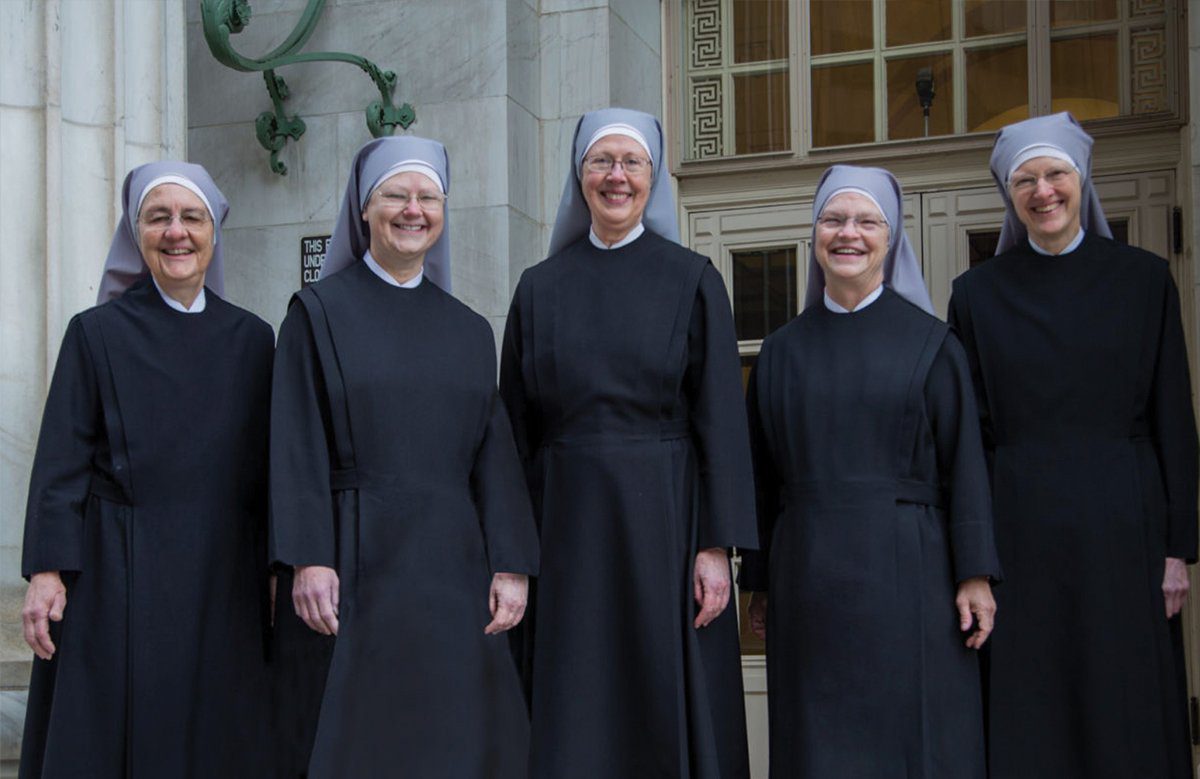Legal Issue(s): Conscience Protections
Court: United States Supreme Court
Case Status: Success
Center's Role: Amicus
Case Description
The Little Sisters of the Poor, a Catholic religious order, has returned to the United States Supreme Court for the third time in eight years in order to protect their basic right to live according to their religious beliefs. Since 2012, the Center for Law & Religious Freedom has filed five amicus briefs in support of the Little Sisters’ religious freedom, including an amicus brief in their appeal that was heard by the Supreme Court in the spring of 2020.
On July 8, 2020, the U.S. Supreme Court ruled in favor of the Little Sisters, finding that the U.S. government acted within its authority when it expanded exemptions to the Affordable Care Act’s requirement for employers to provide insurance coverage that includes contraception. Justice Clarence Thomas wrote the 7-2 opinion for the Court. CLS issued a press release applauding the Court’s decision in favor of the Little Sisters in their seven-year court battle. Kim Colby, director of CLS’ Center for Law & Religious Freedom, was featured in a World Magazine article about the case.
The Little Sisters’ Three Trips to the Supreme Court, 2012-2020
2012: The Obama Administration adopted the HHS Mandate, which required many employers to pay for insurance coverage that would guarantee employees cost-free contraception, including some drugs and devices that may act as abortifacients. While the Mandate included an exemption for some religious employers, it was exceptionally narrow and did not cover many religious nonprofit employers, including religious colleges, schools, and social service providers, such as the Little Sisters of the Poor.
Beginning in 2012, religious nonprofit employers, as well as a handful of religious for-profit employers, filed lawsuits to protect their religious freedom to decline to pay for insurance that violated their religious convictions regarding the sanctity of human life. For more information about the HHS Mandate and the ensuing litigation, visit these CLS webpages.
2014: In January, during the Little Sisters’ first trip to the Supreme Court, they obtained an injunction protecting them from the HHS Mandate’s requirements until their case was heard by the Tenth Circuit. Little Sisters of the Poor v. Sebelius, 571 U.S. 1171 (2014). CLS then filed an amicus brief in support of the Little Sisters in the Tenth Circuit in March.
In June, the Supreme Court ruled in favor of religious for-profit employers in Burwell v. Hobby Lobby Stores, 573 U.S. 682 (2014). The Court ruled that the Religious Freedom Restoration Act (RFRA) required the government to accommodate the religious beliefs of the owners of a closely-held corporation. CLS filed an amicus brief in support of the employers’ religious freedom.
2015: The Little Sisters filed their second appeal with the Supreme Court. CLS filed an amicus brief urging the Court to hear their appeal, which it agreed to do.
2016: CLS filed an amicus brief in support of the Little Sisters in Zubik v. Burwell, 136 S. Ct. 1557 (2016). The Court returned the religious nonprofits’ cases to the lower courts with instructions to agree on a mechanism by which the government did not violate their religious consciences but without clear instructions as to how to accomplish that goal. There was a change in administrations as a result of the November 2016 election, in which religious freedom had been an issue that concerned many voters.
2018: The Trump Administration adopted a new HHS rule that left the HHS Mandate in place for almost all of the employers previously covered by the Obama Administration. The new rule, however, required HHS to respect the religious and moral objections of the relatively small number of employers, both religious nonprofits and closely held for-profits, who were unwilling to provide drugs and devices that acted as either contraceptives or abortifacients. The new rule was based on RFRA and its requirement that the federal government accommodate religious conscience unless it has a compelling interest unachievable by a less restrictive means.
2019: Several states, including California and Pennsylvania, challenged the new HHS rule and its protections for religious dissenters. These states claimed that the federal government could adopt a religious exemption only if RFRA required the exemption. That is not a correct understanding of RFRA. Otherwise persons of faith would never have their religious freedom protected unless they filed a lawsuit and successfully proved in court that RFRA required the specific religious protection they needed. Such a crabbed view of religious freedom is a threat to all Americans’ religious exercise, especially Americans of minority faiths.
The States further argued that the contraception mandate did not substantially burden the Little Sisters because it did not require them to provide contraception coverage directly, but merely required them to authorize a third party to offer contraception to their employees. The Little Sisters believe that this authorization makes them complicit in providing contraception and violates their religious beliefs.
Having lost in the Third and Ninth Circuits, the Little Sisters turned to the Supreme Court for the third time. CLS filed an amicus brief asking the Court to hear the Little Sisters’ case. CLS argued that the Supreme Court has long said that the courts should not pass judgment on the reasonableness of religious beliefs. Rather, the courts should limit their examination to the religious individuals’ sincerity. In this case, it is undisputed that the Little Sisters believe that authorizing a third party to offer contraception on their behalf violates their religious beliefs.
2020: The Court agreed to hear the case. Once again, CLS filed an amicus brief on the merits in support of the Little Sisters. CLS renewed its argument that precedent overwhelmingly holds that courts are not free to judge whether religious beliefs are reasonable. CLS also argued that the Third Circuit erred when it held that HHS lacked authority to act proactively to accommodate religious organizations. Instead, RFRA intends for the federal government to provide broad protections for religious organizations, rather than forcing them constantly to file lawsuits to defend their religious freedom.
On July 8, 2020 the Supreme Court ruled 7-2 in favor of the Little Sisters of the Poor, allowing them to continue serving the elderly poor and dying without threat of millions of dollars in fines. Writing for the Court, Justice Thomas said, “For over 150 years, the Little Sisters have engaged in faithful service and sacrifice, motivated by a religious calling to surrender all for the sake of their brother. . . . But for the past seven years, they—like many other religious objectors who have participated in the litigation and rulemakings leading up to today’s decision— have had to fight for the ability to continue in their noble work without violating their sincerely held religious beliefs.” The Court held that the federal government was right to protect those beliefs.
What principle is the Center fighting for? The government cannot force religious individuals or organizations to violate their religious consciences because government officials think their religious beliefs are unreasonable.





